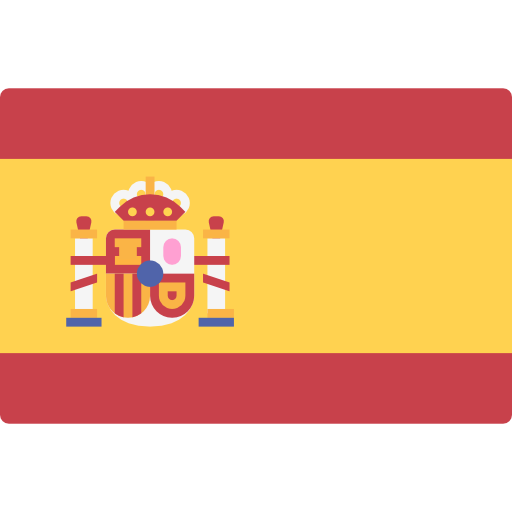ユーチューブチャンネル・YOUTUBE VIDEO

日本語での説教
年間第23主日
- 私たちは最初の朗読で、預言者イザヤが未来について約束するのを聞きました。「見えない人の目が開き、聞こえない人の耳が開く。口の利(き)けなかった人が喜び歌う」。これらは、すべてのユダヤ人が待ち望んでいた主の到(とう)来を示すしるしです。そして、イザヤは紀元前(きげんぜん)8世紀にこの約束を宣言(せんげん)しています。
- そして、私たちは福音書の中で何を聞いたのでしょうか?私たちは、イエス様が盲(もう)人の目を開き、耳の聞こえない人の耳を開き、口のきけない人の舌を開かれたことを聞きました。言い換えれば、イザヤ書の約束がイエス・キリストにおいてどのように成就(じょうじゅ)されたのかを聞いたのです。ユダヤの民が待ち望んでいたのはイエス様です。この方によって、旧約聖書の約束はすべて成就するのです。
- 私たちは自問するかもしれません:キリストの到(とう)来を待ち望んでいたのは、キリストの誕(たん)生以前に生きていた人々だけだったのでしょうか?それとも、キリストの誕生から2024年後に生きる私たちも、キリストの到来を待ち望んでいるのでしょうか?自分の心に尋ねてみれば、私たちがイエス・キリストの到来を期待(きたい)し、望んでいることがわかるでしょう。私たちは、イエス・キリストが来てくださること、そしてこのミサに立ち会ってくださることを期待しています。私たちの家にも来てくださることを願っています。そして、イエス・キリストが終末に再び来てくださることを願っています。それは、キリスト以前に生きた人々のためだけでなく、キリスト以後に生きる私たちすべてのためでもあるのです。
- しかし、イエス様の到来を待ち望むのは、イエス様を本当に知り、洗礼を受けた私たちだけなのでしょうか?また、イエス様を本当に知らず、洗礼を受けていない人たちは、イエス・キリストの到来を待ち望んでいるのでしょうか。いや、むしろ、何を待ち望んでいるのか、誰を待ち望んでいるのかを知らずに待つことは可能なのでしょうか。この最後の質問には簡単な答えがあります。母親の胎内(たいない)にいる赤ん坊(ぼう)を考えてみましょう。赤ちゃんは、自分が待っていることを知らずに誕(たん)生の瞬間(しゅんかん)を待っています。お腹の中で母親を蹴(け)ることに専念(せんねん)して生きています。そして、誰を待っているのかも知らないが、やがて両親の顔を見ることになります。つまり、何を待っているのか、誰を待っているのかを知らずに待つことは可能なのです。しかし、では、イエス様を本当に知らず、洗礼を受けていない人々は、イエス・キリストを待っていると言えるのでしょうか。この問(と)いに答えるためには、自分の心を見つめ直し、自分の心の奥底にあるあこがれや願いを認識(にんしき)する必要があります。そこには、私たちがすべての人類と共有(きょうゆう)している、無限で無条件(むじょうけん)の愛で愛されたいという願望(がんぼう)があります。それは私たちの心に刻まれています。そして、その願望に対して、無限かつ無条件の愛で愛することのできるお方、すなわちイエス・キリストだけが、完全かつ決定的な答えを与えることができるのです。
- イエス・キリストは、心の最も深い欲望と切望に対する答えです。イエス・キリストは、私たちが心の奥底から望み、切望する答えです。ということは、ここ大阪には、まだ本当の意味で知らないイエス・キリストを心の奥底で待ち望んでいる人がたくさんいるということです。私たちはどうすればいいのでしょうか。
・・・・・・・・・・・・・・・・・・・・・・・・・
5 – Chúa Giêsu Kitô, là câu trả lời cho những khao khát, và ước muốn sâu thẳm, nơi tâm hồn mỗi người. Người là câu trả lời mà chúng ta hy vọng, và khao khát, thậm chí ngay cả khi chúng ta không biết mình hy vọng điều gì, hoặc mong muốn điều gì. Điều đó có nghĩa là, ở Osaka đây, có rất nhiều người, nơi sâu thẳm tâm hồn họ, đang chờ đợi Đấng mà họ chưa thực sự biết, đó là Chúa Giêsu Kitô. Vậy sứ mạng mà chúng ta được mời gọi là gì?

Homilía en español
Domingo 23 del Tiempo Ordinario
1 – Hemos escuchado en la primera lectura al profeta Isaías hacer una promesa para el futuro. “Se despegarán los ojos de los ciegos, los oídos de los sordos se abrirán y cantará la lengua del mudo”. Estos son signos que muestran la venida del Señor que todo el pueblo judío esperaba. E Isaías pronuncia esta promesa en el siglo VIII a.C.
2 – Y, ¿qué hemos escuchado en el Evangelio? Hemos escuchado que Jesús le abre los ojos a un ciego, los oídos a un sordo y la lengua a un mudo. Es decir, hemos escuchado cómo la promesa de Isaías se cumple en Jesucristo. Aquel a quien el pueblo judío esperaba, es Jesús. En Él se cumplen todas las promesas del Antiguo Testamento.
3 – Podríamos preguntarnos: ¿sólo los que vivieron antes del nacimiento de Cristo esperaban su venida? O también, por ejemplo, nosotros que vivimos 2024 años después del nacimiento de Cristo, ¿también esperamos su venida? Si le preguntáis a vuestro corazón, reconoceréis que esperamos y deseamos que Jesucristo venga. Esperamos que venga y se haga presente en esta misa. Esperamos que se haga presente en nuestro hogar. Y esperamos que vuelva definitivamente al final de los tiempos. No es solo para los que vivieron antes de Cristo, sino también para todos los que vivimos después de Cristo.
4 – Pero también podríamos preguntarnos: ¿sólo los que hemos conocido verdaderamente a Jesús y estamos bautizados esperamos su venida? Y los que no le conocen verdaderamente y no están bautizados, ¿esperan la venida de Jesucristo? O mejor dicho, ¿es posible esperar sin saber que estamos esperando y a quién estamos esperando? Esta última pregunta tiene una fácil respuesta. Pensemos en un bebé en el vientre de su madre. El bebé espera el momento de su nacimiento sin saber que está esperando. Vive dedicado a darle patadas a su madre en la barriga. Y tampoco sabe a quién está esperando, pero pronto verá el rostro de sus padres. De modo que, es posible esperar sin saber que estamos esperando ni a quién estamos esperando. Pero entonces, ¿podemos decir que aquellos que no conocen verdaderamente a Jesús ni están bautizados esperan a Jesucristo? Para responder a esta pregunta es necesario mirar de nuevo a nuestros corazones y reconocer los anhelos y los deseos más profundos. Ahí descubriremos el deseo de ser amados con un amor infinito e incondicional, que compartimos con todos los seres humanos. Está inscrito a fuego en nuestros corazones. Y a ese deseo, solamente puede dar una respuesta plena y definitiva Aquel que puede amar con un amor infinito e incondicional, es decir, Jesucristo.
5 – Jesucristo es la respuesta a los deseos y los anhelos más profundos del corazón. Él es la respuesta que esperamos y deseamos desde lo más profundo de nuestro corazón, incluso cuando ni siquiera sabemos lo que esperamos ni lo que deseamos. Eso quiere decir que aquí en Osaka hay mucha gente que está esperando en lo profundo de su corazón a Alguien que todavía no conoce verdaderamente, a Jesucristo. ¿Qué vamos a hacer nosotros?

Homily in English
23rd Sunday in Ordinary Time
1 – We heard in the first reading the prophet Isaiah make a promise for the future. ‘The eyes of the blind shall be opened, the ears of the deaf shall be unstopped, and the tongue of the dumb shall sing’. These are signs that show the coming of the Lord that all the Jewish people were waiting for. And Isaiah pronounces this promise in the 8th century BC.
2 – And what have we heard in the Gospel? We heard that Jesus opens the eyes of a blind man, the ears of a deaf man and the tongue of a mute man. In other words, we have heard how Isaiah’s promise is fulfilled in Jesus Christ. The one for whom the Jewish people were waiting is Jesus. In him all the promises of the Old Testament are fulfilled.
3 – We might ask ourselves: was it only those who lived before the birth of Christ who awaited his coming? Or do we, for example, who live 2024 years after the birth of Christ, also await His coming? If you ask your heart, you will recognise that we expect and desire Jesus Christ to come. We expect him to come and to be present at this mass. We hope that he will be present in our home. And we hope that he will definitely come again at the end of time. It is not only for those who lived before Christ, but also for all of us who live after Christ.
4 – But we could also ask ourselves: is it only those of us who have truly known Jesus and are baptised who await his coming? And do those who do not truly know him and are not baptised await the coming of Jesus Christ? Or rather, is it possible to wait without knowing what we are waiting for and whom we are waiting for? This last question has an easy answer. Let us think of a baby in its mother’s womb. The baby waits for the moment of its birth without knowing that it is waiting. It lives dedicated to kicking its mother in the belly. And he doesn’t know who he is waiting for either, but soon he will see the face of his parents. So, it is possible to wait without knowing what we are waiting for or who we are waiting for. But then, can we say that those who do not truly know Jesus and are not baptised are waiting for Jesus Christ? To answer this question we need to look again into our hearts and recognise our deepest longings and desires. There we will discover the desire to be loved by an infinite and unconditional love, which we share with all human beings. It is burned into our hearts. And to that desire, only the One who can love with an infinite and unconditional love can give a full and definitive answer, namely Jesus Christ.
5 – Jesus Christ is the answer to the deepest desires and longings of the heart. He is the answer that we hope and desire from the depths of our hearts, even when we do not even know what we hope and desire. That means that here in Osaka there are many people who are waiting in the depths of their hearts for Someone they do not yet truly know, Jesus Christ. What are we going to do?


